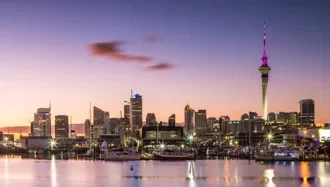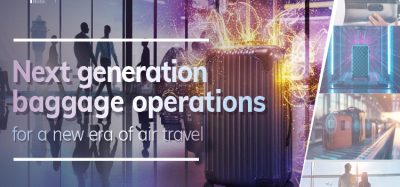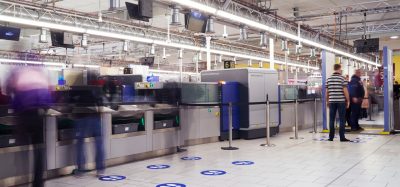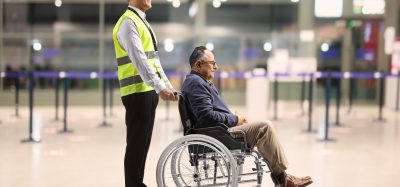Biometrics to advance significantly, says CEO of Philadelphia Airport
- Like
- Digg
- Del
- Tumblr
- VKontakte
- Buffer
- Love This
- Odnoklassniki
- Meneame
- Blogger
- Amazon
- Yahoo Mail
- Gmail
- AOL
- Newsvine
- HackerNews
- Evernote
- MySpace
- Mail.ru
- Viadeo
- Line
- Comments
- Yummly
- SMS
- Viber
- Telegram
- Subscribe
- Skype
- Facebook Messenger
- Kakao
- LiveJournal
- Yammer
- Edgar
- Fintel
- Mix
- Instapaper
- Copy Link
Posted: 27 March 2020 | International Airport Review | No comments yet
Rochelle ‘Chellie’ Cameron, CEO of Philadelphia International Airport, tells International Airport Review about the importance of the airport’s workforce, and the significance of guest experience.
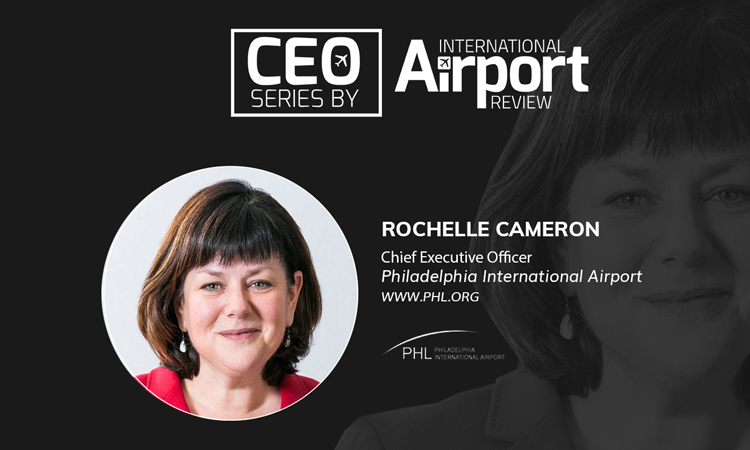

How did your career in the aviation industry begin?
Completely by accident. Coming out of high school, I had three Reserve Officers’ Training Corps (ROTC) scholarships – Army, Navy and Air Force – and I chose the Air Force route to pay for college. When I took that scholarship, I had never been on a plane as a passenger and didn’t understand what aviation was about. My military time provided a wonderful introduction to how aviation works, and I realised that although I am fascinated by the science and physics of flying – people sit in a metal tube with wings and fly around the globe – I was even more fascinated and energised by the logistics of how you put it all together. So, it started in the Air Force, then I was able to jump over to the airport side of things, and the rest is history. I love what I do and I think I have the best job in the city.
What is the most rewarding aspect of being an airport CEO? On the other hand, what is the most difficult?
I think the most rewarding aspect is being able to make a difference for my city, my community, my region and all of the people in it. I’m really proud to play a part in the over $16 billion annual economic impact the airport produces and the more than 106,000 jobs it creates. These are good jobs, with annual earnings of more than $51,000. It is really important that we do everything we can to be successful so that those folks are able to support their families and thrive. Then, when you think about our mission – ‘Proudly Connecting Philadelphia with the World’ – which speaks to how we connect people and drive commerce, it’s absolutely amazing.
The most difficult part of running an airport is that we have to lead and produce results through influence, not through direct control. Of the 21,000 people who work on the Philadelphia Airport campus, only 1,000 are city employees. The other 20,000 work for other companies. How do you bring all those different stakeholders, companies and people together to provide a positive and consistent guest experience? How do we engage employees from other companies at a level where they can see the win-win in working with us to ultimately make it a better place for our guests, for all employees and for everybody else who comes to the airport? How do we rally everyone around that common cause to make sure we’re doing it right? That’s tough.
Can you give us an overview of the three most exciting developments currently happening at Philadelphia International Airport?
First, we are on the cusp of expanding our cargo operation at the airport and there’s a huge potential there. Of the more than $50 billion of cargo that comes in and out of our catchment area each year, only nine per cent is handled at Philadelphia International Airport (PHL). Most of it goes through the New York airports, but what’s really frustrating is that a lot of it is on trucks that go up and down I-95, right in front of our campus. We won’t ever capture all of the cargo from our catchment area, but we should be doing better than nine per cent. It will take time to develop the parcel of land that we recently purchased, but we should be ready to go in the next couple of years, and that’s going to be amazing.
That brings me to the second thing. As part of that cargo development project, we had to mitigate some wetlands. It’s very rare in your career to find true win-win-win situations, but this is one of them. It just so happened that the city’s Parks and Recreation Department manages a major park in South Philadelphia, FDR Park, that has tidal wetland areas that needed work. We approached them, and they kicked off a master planning process for the park which includes us restoring wetlands. Our ability to come to the table with a funding for the wetlands has propelled the entire park project forward. The airport is able to develop the entire airport site, FDR Park gets to move its masterplan forward and the community benefits by having a reworked wetlands area near walking trails and the rest of the park. We all win!
We have begun referring to the folks using our airport as ‘guests’, because the airport is part of the hospitality world”
Thirdly, we recently launched a new Guest Experience Program. We have begun referring to the folks using our airport as ‘guests’, because the airport is part of the hospitality world. Words matter, and the simple act of calling our customers ‘guests’ versus passengers or travellers has begun to drive different conversations about how we can better serve and delight them. We held a two-day internal workshop to develop our vision for the programme, and one of the next steps will be to involve the rest of the airport community in the programme. Remember I talked about how you have to lead through influence? Well, we can’t deliver a guest experience programme on our own, and so we will establish a leadership council of other stakeholders so we can align all of our efforts for success. The Vice President of our hub carrier, American Airlines, Jim Moses, worked on a guest experience programme during his years at LAX, and he will be a fantastic partner.
What is the biggest challenge Philadelphia International Airport is having to tackle?
Maintaining the guest experience during a period of growth. That’s why starting the Guest Experience Program at Philadelphia Airport now is so critical and why we’re putting so much energy into it. We don’t have new facilities being built, so we have to make sure that we do everything we can for the customers coming through our existing facilities.
At this moment, what do you see as the biggest disruptor to the aviation industry?
At this moment in time, I believe the biggest disruptor is the 737 MAX. Think about this: Those planes were already on routes that had to be cancelled or otherwise accommodated. Those planes were on order to replace older aircraft that now have to keep flying. Those planes were going to be delivered to serve new routes. It’s having a real ripple effect. My heart hurts when I think about the families who had loved ones on the planes that went down. It’s a bad situation overall and a big disruptor on the industry’s ability to thrive and grow.
In your opinion, how does the aviation industry need to adapt to secure its place in the future?
I think it’s about figuring out how to adjust our businesses to be better and more sustainable members of our local and global communities. We can do this by taking action to reduce our carbon footprint, providing a good place for people to work and support their families, and giving back in small and large ways. At Philadelphia Airport, we have thought about what to do with food that goes unsold in our concession operations, and our concession management company, MarketPlace, found a way to get that nourishment to members of our community who have no food or are food insecure.
We are developing partnerships with local schools to provide pathways to employment at the airport through our new Director of Workforce Development. We are also designing an entrance to the airport that will use native plants that are easier to maintain. I could give a number of other examples, but the bottom line is our industry must incorporate sustainability principles in everything it does.
What does the future of the aviation industry look like to you?
I believe the future of our industry will see continued integration of technology into our facilities, from smart restroom technologies – so you know when the paper towels are low – to using biometric products to keep us safer and improve operating processes.
I think the biggest advancements will come in the area of biometrics. In the not-so-distant future, you won’t need a boarding pass or credit card or identification to prove that ‘you are you’. Your face or your fingerprint or your hand will be able to admit you into the airport, to pay for things, to board your plane. Technology will make the guest experience better, provided we integrate it in a meaningful and good way. I think there’s a big upside to technology, but we shouldn’t implement technology because it looks cool or to keep up with our peers. How we bring technology into our facilities and operations is important, and we should think about protecting our data and ensuring that technology benefits all people equally.
Related topics
Air freight and cargo, Aircraft, Biometrics, New technologies, Passenger experience and seamless travel, Sustainable development, Workforce




